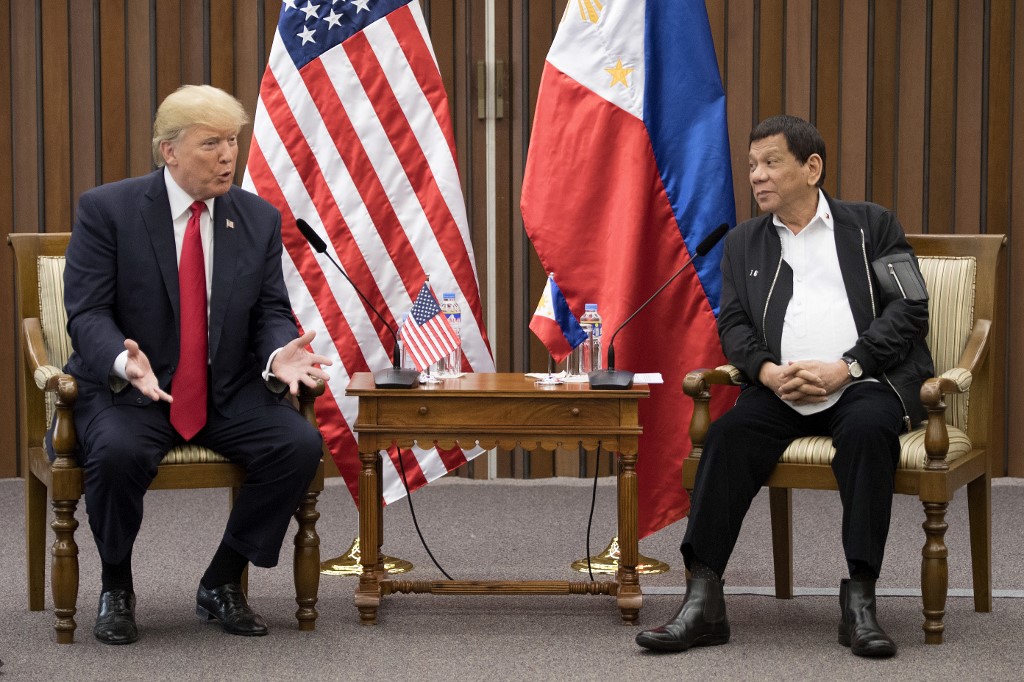The Philippine government yesterday accused The Washington Post of “rumor-mongering” when the newspaper reported that American President Donald Trump congratulated President Rodrigo Duterte over the way the latter has conducted his bloody drug campaign.
Titled “Trump’s calls with foreign leaders have long worried aides, leaving some ‘genuinely horrified,’” the article in question was published by The Post on Oct. 5 using interviews with 12 anonymous former and current government officials who have had knowledge of Trump’s phone calls. It mentioned the awkward (to say the least) conversations Trump has had with different heads of state in which he voiced his approval for questionable policies.
The short paragraph that Malacañang Palace objected to reads: “In another call, in April 2017, Trump told Philippine President Rodrigo Duterte, who had overseen a brutal campaign that has resulted in the extrajudicial killings of thousands of suspected drug dealers, that he was doing an ‘unbelievable job on the drug problem.'”
In a statement, presidential spokesman Salvador Panelo attacked The Post, saying that “the fact that President Trump’s private conversations with world leaders are leaked freely to the press by unnamed sources is simply outlandish.”
“The Washington Post‘s slogan is ‘Democracy Dies in Darkness’ — very apt in relation to the newspaper, because it died in darkness when the prestigious publication engaged itself in political propaganda,” Panelo added.
“The anonymous staff interviewed is simply in the dark, exhibiting his zero inside knowledge on the Philippines’ campaign against illegal drugs. President Trump’s praise of our anti-drug policy and action underscores the American leader’s fair judgment coming from his unlimited and unimpeded access to information,” the spokesman said.
Panelo also said that the anonymous staffer was “blissfully ignorant about pertinent facts” about Duterte’s thoroughly documented anti-drug campaign.
According to the Philippine National Police, almost 7,000 suspects have been killed in the government’s campaign against illegal drugs from July of 2016 to May of 2019. However, human rights groups maintain that the number is much higher. The Philippines’ Commission on Human Rights (CHR) said as early as December of 2018 that the death toll could be as high as 27,000.
Police insist that many of those killed fought back, but skepticism of this explanation has grown to the point that for many, the Filipino word for resisting, “nanlaban,” has become synonymous with summary executions when used by police.
At present, the International Criminal Court is conducting a preliminary investigation into the government’s drug war, despite Duterte’s unilateral decision to leave the organization in March of 2018 in protest of the inquiry. Meanwhile, the United Nations Human Rights Council is preparing a comprehensive written report on the drug war, which will be released sometime next year.
Find all episodes of The Coconuts Podcast





Reader Interactions